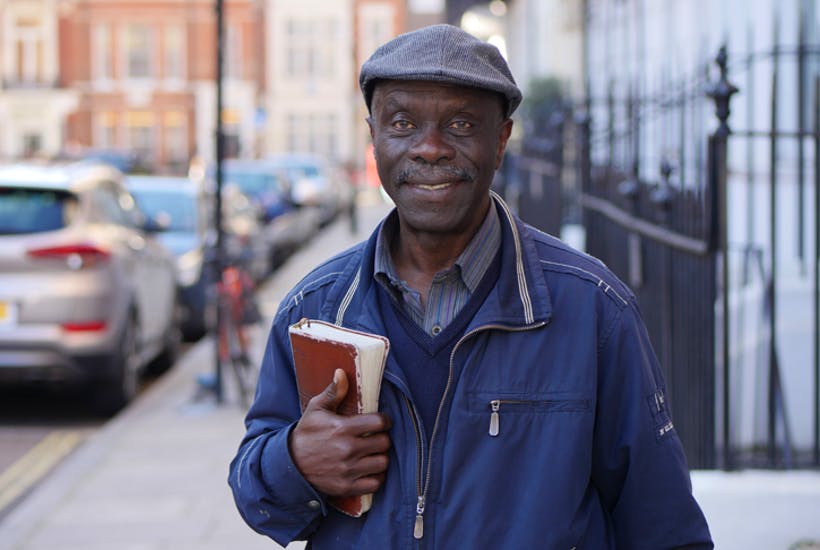In the Middle East, Pakistan, India, North Korea and parts of China – hatred and persecution of Christians is well documented. But who would have thought preaching the gospel would become a risky business on the streets of Britain? Last month saw the wheelchair bound preacher Claudio Boggi being threatened and spat at by a man called Ali Al-Hindawi, who shouted ‘Allah is God’. Al-Hindawi went on to attack another Christian volunteer in Westminster, biting his fingers and assaulting him with a metal bar – he’s thankfully now in jail. Next came the news that an innocent street preacher, Oluwole Ilesanmi, had been arrested for ‘breach of the peace’ outside Southgate tube station, after being reported for ‘Islamophobia’. But are such incidents a sign of a broader antipathy towards Christians or simply isolated incidents?
At the beginning of the year, the Royal Holloway University of London published a survey on ‘The Safety and Security of Anglican Clergy’. The startling findings indicated that one in ten members of the clergy had been subjected to violent behaviour in the previous two years. Of the 540 UK respondents, more than two thirds had been on the receiving end of verbal abuse and one in five had experienced threatening behaviour. The authors of the report confirmed that the main reasons for the verbal abuse included the alcohol and drug use of attackers, mental illness, declined requests for money, and anti-Christian sentiments. Some, however, have suggested that the Christianophobic element shouldn’t be played down.
Nick Tolson the director of National Churchwatch, an organisation that advises on church security, told me that anti-Christian hate crime appears to be increasing:
‘ In the survey, most clergy who suffer from verbal abuse regularly say that it is mostly anti-Christian. Most of these crimes are not reported and clergy often suffer significant effects on their vocation.’
Tolson, who is a former police officer, believes more needs to be done to safeguard vicars, many of whom are vulnerable due to their isolation in rural areas. He expressed ongoing concern, and said, ‘no diocese in the Church of England has a formal method of reporting violence against clergy. Clergy will often talk to their colleagues or make a report to the police, but there is no standard reporting system in place which would allow clergy who suffer from, or feel at risk of violence to receive appropriate training in personal safety and dealing with violence.’
Meanwhile, a petition has been set up following Ilesanmi’s case, to urge the home secretary to protect the free speech of street preachers. Tim Dieppe, the head of public policy at Christian Concern, told me ‘I don’t really want to pander to the victim mentality in our culture where we all compete for the greatest victim status. Nevertheless, our experience is that street preachers are frequently arrested without good cause.’
Other recent cases show we cannot simply ignore the problem. But it seems as if policy makers give it less attention than other hate crimes. It’s peculiar that Britain’s majority faith doesn’t have a separate hate crime category like its Abrahamic cousins – that said, hate crime is now being broken down by religion by UK police forces. This at least will help Christian groups gauge the size of the problem in the future.
Our elected leaders do of course take anti-Christian hate seriously. At the start of the year, the government launched a ‘persecution of Christians across the Globe independent review’. In his speech the foreign secretary, Jeremy Hunt, cited the bomb attack which killed twenty Christians in a church in the Philippines. He pointed to Christian persecution in Somalia, Libya, Sudan, Afghanistan, North Korea and China, and said ‘we wanted to ask ourselves… whether we really are doing as much as we possibly could’. Given the spate of recent cases in Britain, perhaps the government should consider the ripples of intolerance a bit closer to home too.






Comments